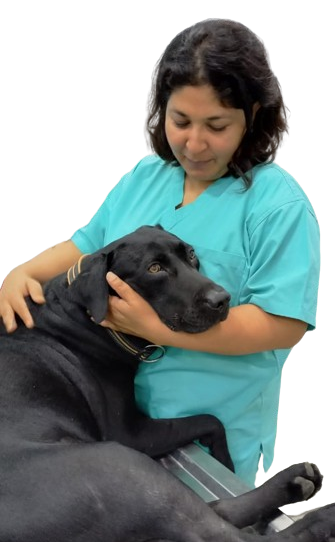Creating balanced and complete meals for pets is essential for their overall health and well-being. Whether you're feeding a dog, cat, or any other domestic animal, providing a diet that meets their nutritional needs is crucial. Here's how to ensure you're offering balanced and complete food for your pets:
- Consult with a Veterinarian: Before making any dietary changes or decisions for your pet, it's essential to consult with a veterinarian. They can provide guidance based on your pet's age, breed, size, activity level, and any underlying health conditions.
- Understand Your Pet's Nutritional Needs: Dogs, cats, and other pets have specific nutritional requirements that must be met for optimal health. These include protein, carbohydrates, fats, vitamins, and minerals. Research or consult with your veterinarian to understand what nutrients are essential for your pet's diet.
- Choose High-Quality Commercial Pet Food: High-quality commercial pet foods are formulated to meet the nutritional needs of pets. Look for products that meet the Association of American Feed Control Officials (AAFCO) standards for complete and balanced nutrition. Choose options that are appropriate for your pet's life stage (e.g., puppy, adult, senior) and any specific dietary requirements they may have.
- Read Labels Carefully: When selecting pet food, read the labels carefully to understand the ingredients and nutritional content. Look for whole food ingredients, such as meat, fish, fruits, and vegetables, as well as essential nutrients like omega-3 fatty acids, vitamins, and minerals.
- Consider Homemade Diets: Some pet owners prefer to prepare homemade diets for their pets. If you choose this route, it's essential to work with a veterinary nutritionist to ensure the diet is balanced and complete. Homemade diets may require supplementation to ensure all essential nutrients are provided.
- Rotate Protein Sources: Variety is essential in your pet's diet to ensure they receive a wide range of nutrients. Rotate protein sources, such as chicken, beef, fish, and lamb, to provide different amino acids and micronutrients. However, make sure your pet doesn't have any allergies or sensitivities to specific proteins.
- Avoid Overfeeding and Underfeeding: Feeding your pet the right amount of food is crucial for maintaining a healthy weight and preventing nutritional deficiencies or excesses. Follow feeding guidelines provided by the pet food manufacturer or your veterinarian, and adjust portion sizes based on your pet's activity level and body condition.
- Monitor Your Pet's Health: Keep an eye on your pet's overall health, including their weight, coat condition, energy levels, and digestion. If you notice any changes or concerns, consult with your veterinarian promptly to address any potential issues.
By following these guidelines and working closely with your veterinarian, you can ensure that your pet receives a balanced and complete diet that supports their health and longevity.










